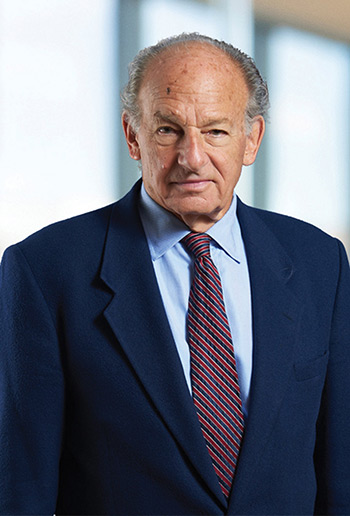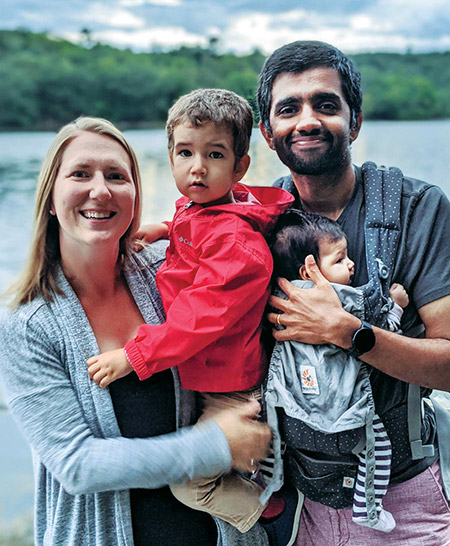By Gwyneth K. Shaw

California native Charles Miller ’58 entered UC Berkeley in 1952 and left six years later, B.A. and J.D. in hand. The experience propelled him to a coveted clerkship with U.S. Supreme Court Justice William O. Douglas and a premier job at Covington.
The state’s policies at the time meant Miller earned two degrees at a very low cost. It’s moved him to give to the school for six decades — one of a cadre of stalwart donors who have made contributing annually to Berkeley Law a longtime habit.
Whether you graduated last year or in the last century, they say, annual giving helps pay forward the benefits of your own law school experience.
“I owe my entire career to that education, which cost me nothing,” Miller says. “To me, the idea of giving back to the university is a no-brainer. And I give as much as I can, as often as I can.”
William Hoffman ’69 made his first donation to Berkeley Law in the spring of 1970, while stationed at Langley Air Force Base in Virginia. Having served in the Reserve Officers Training Corps as a UC Berkeley undergraduate, he was granted an educational delay from service in Vietnam to attend law school and then called to active duty right after passing the California Bar Exam.
“I realized that I’d had a world class education at the finest public institution on the face of the Earth, and I had no debt whatsoever,” Hoffman says.
“Every dollar matters enormously and I am tremendously grateful to those who support our wonderful law school.”
— Dean Erwin Chemerinsky
Times have changed, but the Berkeley Law experience remains, he says. So year after year, he gives.
“It was incumbent on me to return the favor by supporting UC Berkeley for all it had done for me,” Hoffman says. “I owe everything I am to Cal, and I intend to give as much as I can, as long as I am able — and, after I’m gone, through my estate.”
Dean Erwin Chemerinsky, recently appointed to a second five-year term, has made fundraising and stepping up outreach to alumni key priorities since he arrived in 2017. The school raised just under $31 million last fiscal year, a record, with a significant increase in new donors.
The reality is that tuition, and a small amount from the state, don’t begin to cover the school’s costs, Chemerinsky explains.
“Everything we do — training the next generation of lawyers, producing excellent scholarship, fulfilling our public mission, being a top law school — depends on the support of our alumni,” he says. “Every dollar matters enormously and I am tremendously grateful to those who support our wonderful law school.”
It’s not just older alumni who make giving to Berkeley Law an annual tradition.

Then transplanted East Coasters Vivek ’11 and Lily Rao ’11 met on their first day of law school, in Professor Paul Schwartz’s Torts small section — echoing the experience of Lily’s parents, Kate Bartlett ’75 and Chris Schroeder ’74, who also paired up while students at Berkeley Law.
“Berkeley is a wonderful place to study law,” Vivek says. “It helped us grow as people as much or more than as thinkers. Berkeley attracts some fantastic, well-rounded people who have become lifelong friends.”
The Raos have donated every year since graduating. Especially now, living in Boston with their two young children, it helps them feel invested in and connected to the continuing life of the school.
“We got a lot out of our time at Berkeley Law, and it’s an institution we want to see thrive, especially because it’s a public school with a deep tradition of supporting public service,” Lily says. “We make our annual gift without an ounce of hesitation — it feels natural.”
To Miller, the equation is simple.
“Whatever your Berkeley education cost, the value of what you got out is greater than what you invested. And it’s something that has benefited you for your entire life,” he says. “Therefore, Berkeley Law should be a primary source of your own philanthropy, so that others can have the same benefits you have had.”